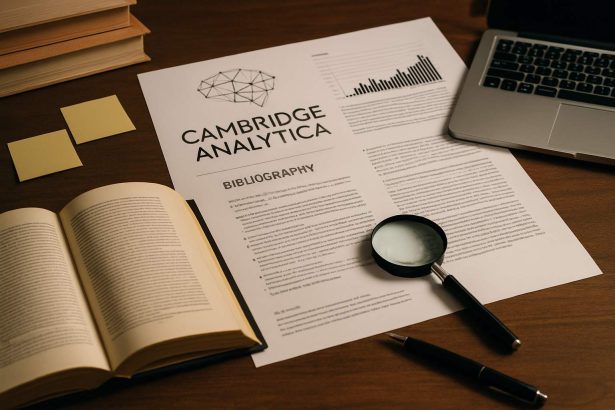Looking back: what really happened
In 2018, revelations about the British firm Cambridge Analytica shook the foundations of global trust in technology.
The company had harvested data from more than 80 million Facebook users without consent, using it to build psychological profiles that influenced political campaigns in the U.S., the U.K., and beyond.
- Looking back: what really happened
- The beginning of digital accountability
- The rise of data literacy
- Rebuilding trust in technology
- Ethics by design
- How governments responded
- The age of digital responsibility
- The ongoing challenge: disinformation and AI
- Digital citizenship and empowerment
- What the next generation must learn
- A hopeful future
It wasn’t just a story about data misuse — it was about how digital tools could be turned into instruments of persuasion and control.
The scandal forced societies to confront the darker side of connectivity.
The beginning of digital accountability
Before the scandal, data privacy was seen as a niche concern for technologists and lawyers.
After Cambridge Analytica, it became a mainstream issue.
Users, journalists, and regulators demanded to know what companies were doing with personal data — and why.
The incident led to new laws, deeper investigations, and public debates about the ethics of big data.
It marked the first time tech giants were held accountable not just for innovation, but for social impact.
The rise of data literacy
One of the most positive outcomes of the scandal was a surge in public awareness.
People began to ask new questions: How do algorithms work? Why do I see certain ads? Who profits from my online behavior?
Schools, NGOs, and media organizations began to include data literacy in education programs.
Understanding data became as essential as reading or writing — a civic skill necessary for navigating modern life.
Rebuilding trust in technology
Tech companies were forced to rethink their relationships with users.
Transparency dashboards, data download tools, and privacy controls became standard features.
Facebook (now Meta), Google, and Apple introduced new settings that allowed users to manage permissions more easily.
Yet, rebuilding trust takes time.
Many users remain skeptical of corporate promises, aware that convenience often comes at the cost of surveillance.
Ethics by design
The scandal inspired a new movement among developers and entrepreneurs: ethics by design.
Instead of treating privacy as an afterthought, companies began embedding ethical principles into the very architecture of products.
Concepts like privacy by default, explainable AI, and human-centered technology gained traction.
The goal was not only to comply with regulations, but to restore dignity to users.
How governments responded
The regulatory response to Cambridge Analytica changed the global legal landscape.
The European Union enforced the General Data Protection Regulation (GDPR), which became a model for other countries.
The U.S., once hesitant, began to introduce state-level privacy laws like the California Consumer Privacy Act (CCPA).
Even developing nations started drafting data protection frameworks, recognizing that digital sovereignty was key to independence in the 21st century.
The age of digital responsibility
Cambridge Analytica showed that data isn’t just a technical issue — it’s a moral one.
Every engineer, policymaker, and marketer now faces the same question: just because something is possible, does it mean it’s right?
The scandal set a precedent for corporate accountability.
Companies began publishing ethical charters, hiring data protection officers, and funding independent audits of algorithmic fairness.
The ongoing challenge: disinformation and AI
Today, the legacy of Cambridge Analytica intersects with a new threat — artificial intelligence.
Deepfakes, synthetic media, and generative AI have made it even harder to distinguish truth from manipulation.
The tools have evolved, but the principle remains the same: whoever controls the data controls the narrative.
The fight for transparency and accountability is now more urgent than ever.
Digital citizenship and empowerment
For the next generation, the Internet is not just a tool — it’s an environment.
Teaching digital citizenship means giving young people the knowledge and ethics to navigate this environment responsibly.
This includes understanding online consent, managing digital footprints, and recognizing manipulation techniques.
Awareness is the first step toward autonomy.
What the next generation must learn
- Data is identity: What you share shapes how systems perceive and treat you.
- Algorithms have agendas: They reflect human values and economic incentives.
- Privacy is power: Controlling your information means controlling your influence.
- Transparency builds trust: Demand openness from the institutions that govern your data.
- Collective action matters: Protecting privacy is a shared responsibility, not an individual struggle.
A hopeful future
Despite its dark origins, the Cambridge Analytica story offers hope.
It proved that awareness can drive change, that technology can evolve ethically, and that citizens can hold power accountable.
The next generation inherits both the challenges and the wisdom of this era.
If they can blend innovation with conscience, the future of the Internet might yet fulfill its original promise: connection without exploitation.
Takeaway: The Cambridge Analytica scandal changed how the world thinks about data.
Its legacy is not just caution — it’s awakening.
The next digital generation must build an Internet that values transparency, fairness, and humanity above all else.







